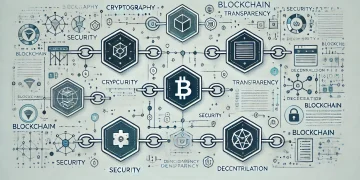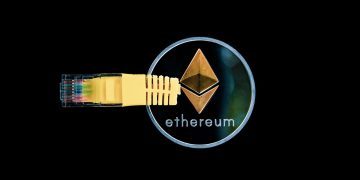When most people hear the term “blockchain,” their minds immediately jump to cryptocurrencies like Bitcoin or Ethereum. While it’s true that blockchain technology underpins these digital currencies, its potential applications extend far beyond the realm of finance. In recent years, innovators and industry leaders have been exploring numerous ways to leverage blockchain’s unique properties to solve real-world problems and transform various sectors of the global economy.
In this comprehensive guide, we’ll explore the fascinating world of blockchain applications beyond cryptocurrencies. We’ll delve into how this groundbreaking technology is being used to enhance security, increase transparency, and improve efficiency across a wide range of industries. From supply chain management to healthcare, from voting systems to intellectual property protection, blockchain is proving to be a versatile and powerful tool for innovation.
Understanding Blockchain Technology
Before we dive into specific applications, it’s crucial to have a basic understanding of what blockchain technology is and how it works. At its core, a blockchain is a distributed, decentralized ledger that records transactions across a network of computers. Each transaction is stored in a “block,” which is then linked to previous blocks, forming a chain of information.
Key features of blockchain technology include:
- Decentralization: No single entity controls the entire network, making it resistant to censorship and single points of failure.
- Transparency: All transactions are visible to network participants, creating an auditable trail of information.
- Immutability: Once data is recorded on the blockchain, it becomes extremely difficult to alter or delete, ensuring data integrity.
- Security: Cryptographic techniques secure the data and transactions, making the blockchain highly resistant to hacking and fraud.
These properties make blockchain an attractive solution for many industries beyond finance, where trust, transparency, and security are paramount. Let’s explore some of the most promising real-world applications of blockchain technology.
Supply Chain Management and Logistics
One of the most significant areas where blockchain is making a substantial impact is in supply chain management and logistics. The global supply chain is a complex network of manufacturers, suppliers, distributors, and retailers, often spanning multiple countries and jurisdictions. Tracking products from their origin to the end consumer has traditionally been challenging, leading to issues such as counterfeiting, inefficiency, and lack of transparency.
Blockchain technology offers a solution to these problems by creating an immutable record of a product’s journey through the supply chain. Each step of the process, from raw material sourcing to manufacturing and distribution, can be recorded on the blockchain, creating a transparent and traceable history of the product.
For example, Walmart has partnered with IBM to implement a blockchain-based system for tracking food products. This system allows Walmart to quickly trace the origin of food items, which is crucial for managing food safety issues and recalls. In the event of a contamination outbreak, Walmart can now trace a product back to its source in seconds, rather than days or weeks, potentially saving lives and reducing the economic impact of recalls.
Similarly, in the luxury goods industry, companies like LVMH are using blockchain to combat counterfeiting. By recording the provenance of high-end products on a blockchain, consumers can verify the authenticity of their purchases, and brands can protect their reputation and revenue from fake goods.
The potential benefits of blockchain in supply chain management include:
- Increased transparency and traceability
- Reduced fraud and counterfeiting
- Improved efficiency and reduced paperwork
- Enhanced food safety and faster recall processes
- Better inventory management
As more companies adopt blockchain for supply chain management, we can expect to see increased efficiency, reduced costs, and greater consumer trust across various industries.
Healthcare and Medical Records
The healthcare industry faces numerous challenges related to data management, patient privacy, and interoperability between different systems. Blockchain technology has the potential to address many of these issues, revolutionizing how medical data is stored, accessed, and shared.
One of the primary applications of blockchain in healthcare is the creation of secure, interoperable electronic health records (EHRs). By storing patient data on a blockchain, healthcare providers can ensure that records are tamper-proof, easily accessible to authorized parties, and controlled by the patients themselves.
For instance, Estonia, a country known for its digital innovation, has implemented a blockchain-based system for securing health records. This system allows patients to have full control over their medical data, deciding who can access it and when. Healthcare providers can quickly and securely share information, leading to better coordination of care and reduced medical errors.
Blockchain can also play a crucial role in combating counterfeit drugs, a significant problem in many parts of the world. By recording the entire journey of a drug from manufacturer to patient on a blockchain, it becomes much more difficult for counterfeit products to enter the supply chain. Companies like MediLedger are already working on blockchain solutions to verify the authenticity of prescription drugs.
Other potential applications of blockchain in healthcare include:
- Clinical trial management and data integrity
- Medical credentialing and licensing verification
- Secure sharing of genomic data for research purposes
- Streamlined insurance claims processing
- Enhanced medical device tracking and maintenance
As blockchain technology matures and regulatory hurdles are addressed, we can expect to see widespread adoption in the healthcare sector, leading to improved patient outcomes, reduced costs, and enhanced data security.
Voting Systems and Government Services
The integrity of voting systems is crucial for maintaining trust in democratic processes. However, many current voting systems are vulnerable to tampering, fraud, and lack of transparency. Blockchain technology offers a potential solution to these issues by providing a secure, transparent, and auditable voting platform.
Several countries and organizations have begun experimenting with blockchain-based voting systems. For example, West Virginia in the United States piloted a blockchain voting app for overseas military personnel in the 2018 midterm elections. While this was a small-scale trial, it demonstrated the potential for blockchain to make voting more accessible and secure.
In addition to voting, blockchain has numerous potential applications in government services:
- Identity Management: Blockchain can provide a secure and efficient way to manage citizens’ identities, reducing fraud and streamlining access to government services.
- Land Registry: Countries like Georgia and Sweden have piloted blockchain-based land registry systems, which can reduce property disputes and increase transparency in real estate transactions.
- Tax Collection: Blockchain could streamline tax collection processes, reducing fraud and increasing efficiency in government revenue collection.
- Public Record Keeping: Government records, from birth certificates to business licenses, could be securely stored and easily verified on a blockchain.
- Transparent Budgeting: Blockchain can increase transparency in government spending by creating an immutable record of budget allocations and expenditures.
While there are still challenges to overcome, such as ensuring voter privacy and scaling systems to handle large-scale elections, blockchain has the potential to significantly enhance the security and transparency of democratic processes and government services.
Intellectual Property and Copyright Protection
In the digital age, protecting intellectual property (IP) and enforcing copyrights has become increasingly challenging. Blockchain technology offers innovative solutions to these problems by providing a tamper-proof record of creation dates, ownership, and usage rights for various forms of intellectual property.
One area where blockchain is making significant inroads is in the music industry. Platforms like Musicoin and Ujo Music are using blockchain to create transparent systems for royalty payments. These platforms allow artists to publish their music directly to the blockchain, automatically enforcing licensing terms and ensuring fair compensation for creators.
In the realm of patents and trademarks, blockchain can provide an immutable timestamp for inventions and creative works. This can be crucial in establishing priority in patent disputes or copyright infringement cases. Companies like IPwe are leveraging blockchain to create a global patent registry, making it easier for inventors to protect their ideas and for companies to search for existing patents.
Other potential applications of blockchain in IP and copyright protection include:
- Digital rights management for e-books, movies, and other digital content
- Verification of authenticity for digital art and collectibles
- Tracking and enforcing licensing agreements for software and other digital products
- Creating decentralized marketplaces for buying and selling IP rights
By providing a secure and transparent way to record and enforce intellectual property rights, blockchain has the potential to revolutionize how we create, share, and monetize creative works in the digital age.
Energy and Environmental Applications
Blockchain technology is also finding applications in the energy sector and environmental conservation efforts. One of the most promising areas is in the creation of decentralized energy grids, where individuals can buy and sell excess solar energy directly to their neighbors without the need for intermediaries.
Companies like Power Ledger and LO3 Energy are pioneering blockchain-based platforms that allow for peer-to-peer energy trading. These systems can help increase the adoption of renewable energy sources, reduce reliance on centralized power grids, and provide more resilient energy infrastructure.
Blockchain is also being used to create more transparent and efficient carbon credit trading systems. The technology can provide a secure and auditable record of carbon credits, making it easier to verify emissions reductions and prevent double-counting of credits. This has the potential to enhance the effectiveness of carbon trading markets and accelerate efforts to combat climate change.
Other environmental applications of blockchain include:
- Tracking and verifying sustainable sourcing practices
- Monitoring and reporting on environmental impact and compliance
- Creating decentralized marketplaces for recycling and waste management
- Enhancing the traceability of endangered species products to combat illegal wildlife trade
As the world grapples with pressing environmental challenges, blockchain technology offers innovative solutions for promoting sustainability and conservation efforts.
Financial Services Beyond Cryptocurrencies
While cryptocurrencies are the most well-known application of blockchain in finance, the technology has the potential to transform many other aspects of the financial services industry. Some key areas where blockchain is making an impact include:
- Cross-Border Payments: Blockchain can facilitate faster, cheaper, and more transparent international money transfers. Companies like Ripple are working with banks to implement blockchain-based systems for cross-border payments.
- Trade Finance: Blockchain can streamline trade finance processes by creating a shared ledger for all parties involved in a transaction, reducing paperwork and the risk of fraud.
- Know Your Customer (KYC) and Anti-Money Laundering (AML): Blockchain can create a secure, shared repository of customer information, making KYC and AML processes more efficient and effective.
- Insurance: Smart contracts on blockchain platforms can automate insurance claims processing, reducing fraud and improving efficiency.
- Asset Tokenization: Blockchain enables the creation of digital tokens representing ownership in real-world assets like real estate or fine art, potentially increasing liquidity and accessibility of these markets.
By leveraging blockchain technology, financial institutions can reduce costs, improve security, and offer more innovative services to their customers.
Education and Credentialing
The education sector is another area where blockchain technology is showing promise. One of the primary applications is in the verification of academic credentials. Currently, verifying academic degrees and certifications can be a time-consuming and sometimes unreliable process. Blockchain can provide a secure and tamper-proof record of academic achievements, making it easier for employers to verify credentials and for students to share their accomplishments.
Several universities and organizations are already experimenting with blockchain-based credentialing systems. For example, MIT has been issuing digital diplomas on the blockchain since 2017, allowing graduates to easily share and verify their credentials.
Other potential applications of blockchain in education include:
- Creating secure and verifiable records of lifelong learning achievements
- Facilitating the transfer of credits between educational institutions
- Protecting intellectual property rights for educational content
- Streamlining student record management and transcript sharing
- Enhancing the security and integrity of online learning platforms
As the education landscape continues to evolve, blockchain technology has the potential to create more transparent, efficient, and learner-centric systems.
Conclusion: The Future of Blockchain Technology
As we’ve explored in this article, the potential applications of blockchain technology extend far beyond cryptocurrencies. From supply chain management to healthcare, from voting systems to environmental conservation, blockchain is proving to be a versatile and powerful tool for solving real-world problems.
While many of these applications are still in their early stages, the potential for blockchain to transform various industries is immense. As the technology matures and more organizations recognize its benefits, we can expect to see increased adoption across a wide range of sectors.
However, it’s important to note that blockchain is not a panacea for all technological challenges. Like any emerging technology, it faces hurdles in terms of scalability, energy consumption, and regulatory compliance. As the blockchain ecosystem evolves, addressing these challenges will be crucial for realizing the full potential of this groundbreaking technology.
Despite these challenges, the future of blockchain looks bright. As more real-world applications emerge and prove their value, we can expect to see blockchain become an integral part of our technological infrastructure, much like the internet has become today.
For individuals and organizations looking to stay ahead of the curve, understanding the potential of blockchain beyond cryptocurrencies is crucial. Whether you’re a business leader, a policymaker, or simply a curious individual, keeping abreast of blockchain developments in various industries can provide valuable insights into the future of technology and its impact on society.
As we move forward, it’s clear that blockchain will continue to play a significant role in shaping our digital future. By harnessing its unique properties of transparency, security, and decentralization, we have the opportunity to create more efficient, equitable, and innovative systems across a wide range of human endeavors. The journey of blockchain beyond crypto has only just begun, and the possibilities are truly exciting.













































